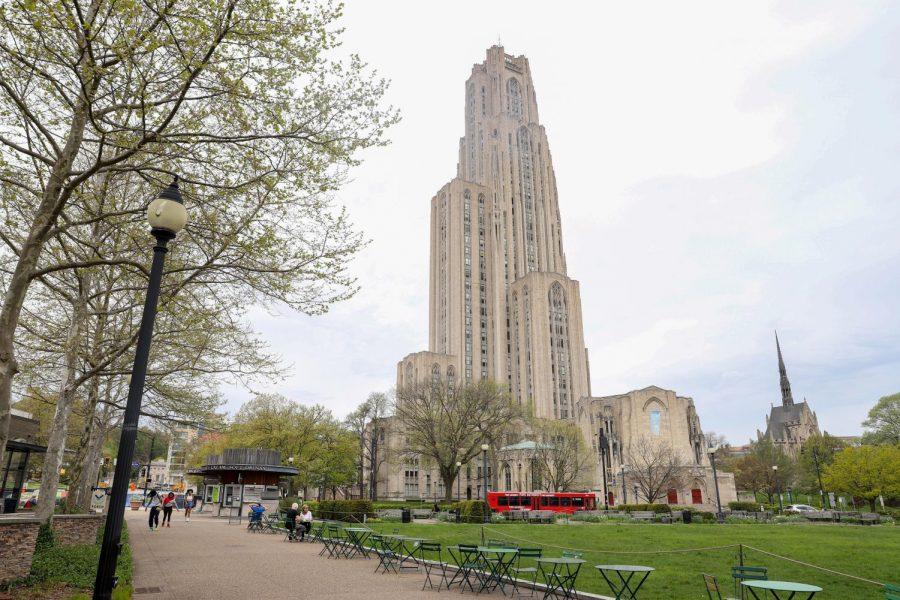Pitt says students should not travel to campus until further notice
Kaycee Orwig | Senior Staff Photographer
The University-wide shelter-in-place period ended as of 7 a.m. Tuesday morning.
January 8, 2021
Pitt students should not travel to campus yet for the upcoming spring semester due to COVID-19 uncertainty, Pitt’s COVID-19 Medical Response Office said in a Friday evening email. Classes are scheduled to begin in a week and a half on Jan. 19, using the same Flex@Pitt teaching model as the fall.
“Based on the uncertainty of the prevalence of the virus after the holidays, none of the students should travel yet,” the office said. “We continue to recommend that you remain where you are currently residing.”
The office said the University will give students at least two weeks notice before advising that students should travel to campus. Residence halls will open in a “phased arrival” pattern similar to the fall semester. The office added that the earliest it advises students to travel is the last week of January.
“All Pitt students — whether or not you live in University housing — should not travel to the area prior to this time,” the office said.
The University said it will release more information next week on pre- and post-travel restrictions, recommended arrival dates, COVID-19 testing requirements and shelter-in-place guidance for all students.
Eric Macadangdang, the president of Student Government Board, said even though this move is “inconvenient” for students, it’s necessary due to rising COVID-19 numbers locally and nationally. The United States recorded more than 4,000 daily COVID-19 deaths for the first time Thursday, the highest single-day total since the pandemic began.
“Students are very valid and frustrated with not knowing when they can return to campus,” Macadangdang said. “But on the flip side of things, we’re seeing numbers that are through the roof.”
Macadangdang added that since students will be arriving to campus after classes start, he’s told Vice Provost and Dean of Students Kenyon Bonner and other senior University officials in meetings throughout this week that courses need to be flexible to reflect these “unprecedented and tough circumstances.”
“I’ve made it clear in these discussions this week that, given that we’re definitely going to see students arrive to campus after classes start, we have to make sure that faculty and professors and teaching assistants are well equipped to be flexible during this time,” Macadangdang said.
Chris Bonneau, the faculty government president, said it was clear to him as the fall semester was ending that the spring would begin online. He added that Flex@Pitt allows the University to not delay the start of the spring semester, as some universities have decided.
“We’re prepared,” Bonneau, the president of the University Senate, said. “I don’t think any student should be surprised by that, that we’re starting online.”
Bonneau added that Pitt is still in the process of determining how to bring students back to campus in the safest possible manner, given soaring virus cases across the country.
“We’re trying to figure out how to repopulate the campus and do so in a way that’s safe, that doesn’t stress our health care capacity, that doesn’t stress our testing capacity, that’s minimally disruptive to students,” Bonneau said. “It’s a real problem trying to figure out how to do this.”
In response to a question about the spring announcement’s placement, which came at the bottom of a rote Friday evening email about campus case numbers, Bonneau said he thought all communications from Pitt should be “as clear as possible.”
“We should be doing everything we can to make sure students and every stakeholder has the necessary information,” Bonneau said. “Highlighting things like that upfront, personally I think are preferable. But I’m not a marketing communications person… I don’t know the reasoning behind it, so I don’t want to speculate too much.”








